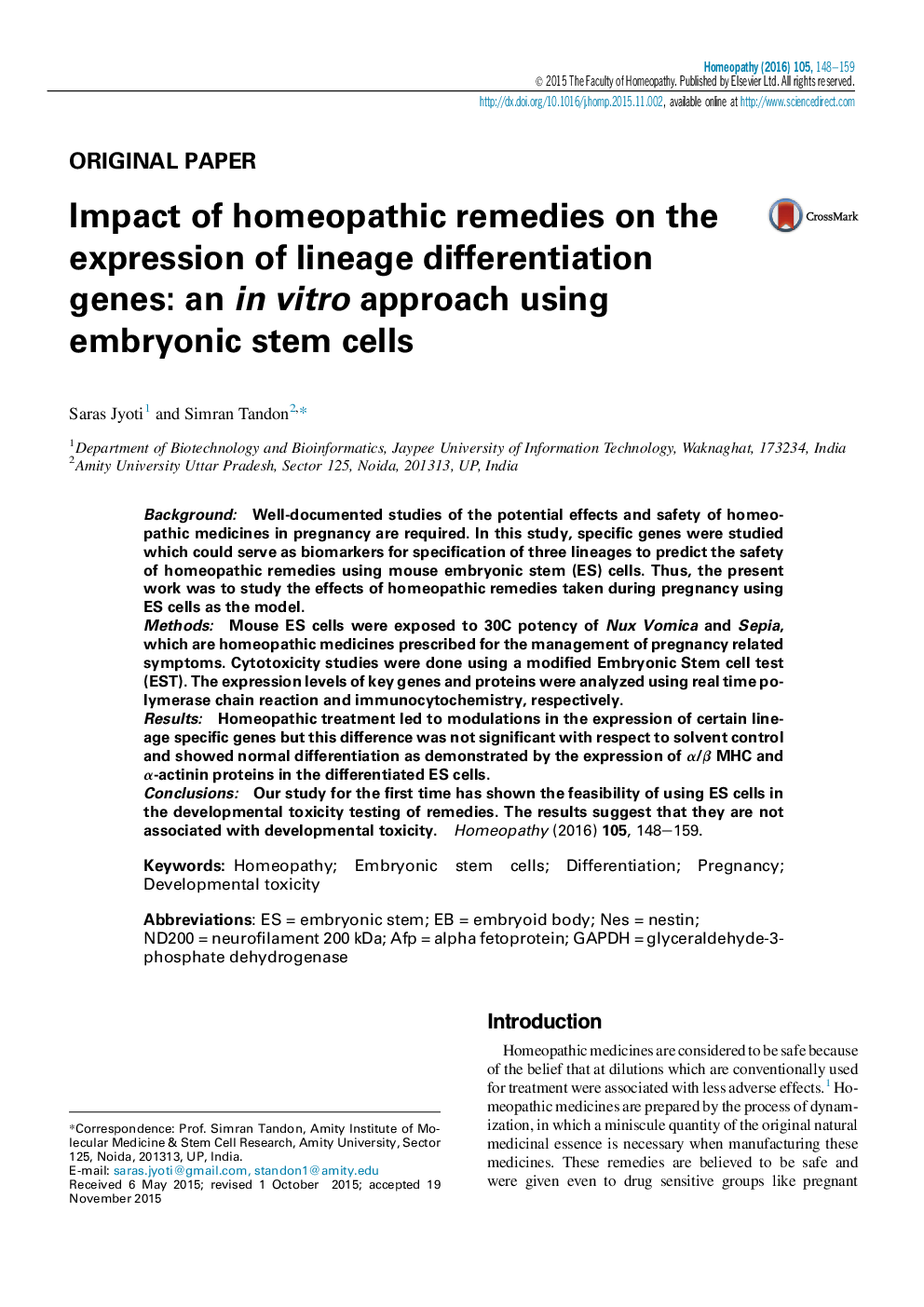| Article ID | Journal | Published Year | Pages | File Type |
|---|---|---|---|---|
| 2629713 | Homeopathy | 2016 | 12 Pages |
•The study reveals the effects of homeopathic remedies taken during pregnancy using ES cells as the model system.•Modulations in lineage specific genes were noted but the differences were not significant with respect to solvent control.•Protein expression showed normal differentiation as evidenced by α/βMHC and α-actinin marker protein expression.•Our study for the first time has shown the use of ES cells in the developmental toxicity testing.
BackgroundWell-documented studies of the potential effects and safety of homeopathic medicines in pregnancy are required. In this study, specific genes were studied which could serve as biomarkers for specification of three lineages to predict the safety of homeopathic remedies using mouse embryonic stem (ES) cells. Thus, the present work was to study the effects of homeopathic remedies taken during pregnancy using ES cells as the model.MethodsMouse ES cells were exposed to 30C potency of Nux Vomica and Sepia, which are homeopathic medicines prescribed for the management of pregnancy related symptoms. Cytotoxicity studies were done using a modified Embryonic Stem cell test (EST). The expression levels of key genes and proteins were analyzed using real time polymerase chain reaction and immunocytochemistry, respectively.ResultsHomeopathic treatment led to modulations in the expression of certain lineage specific genes but this difference was not significant with respect to solvent control and showed normal differentiation as demonstrated by the expression of α/β MHC and α-actinin proteins in the differentiated ES cells.ConclusionsOur study for the first time has shown the feasibility of using ES cells in the developmental toxicity testing of remedies. The results suggest that they are not associated with developmental toxicity.
